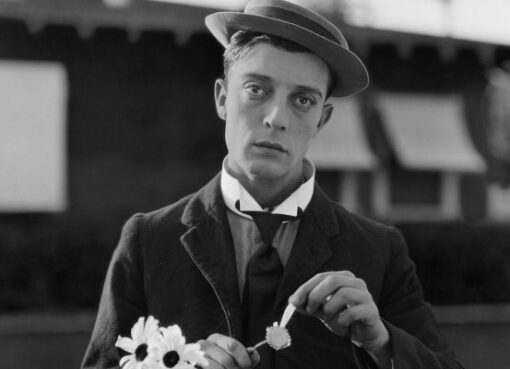Canadian Oscar-nominated filmmaker Norman Jewison, who passed away on January 20 at the age of 97, regarded himself as a storyteller first and foremost.
Norman Jewison, following in the footsteps of the Hollywood studio system’s versatile craftsmen who directed films in a variety of genres, was ultimately endowed with sole creative authority.
Norman Jewison had a knack for producing films that entertained audiences while also communicating his worldview, whether it was a Cold War farce (The Russians Are Coming! The Russians Are Coming!), a stylish heist (The Thomas Crown Affair), a racial drama (In the Heat of the Night), a musical (Fiddler on the Roof), a sci-fi dystopia (Rollerball), or a romantic comedy (Moonstruck).
Heat, Fiddler, Russians, A Soldier’s Story, and Moonstruck were all nominated for the Academy Award for Best Picture; the film Heat ultimately won the award in 1968. The last three received nominations for the Jameson Oscar for Best Director.
Norman Jewison was born on July 21, 1926, in Toronto. His occupation throughout World War II was with the Royal Canadian Navy. After the conclusion of the conflict, he began a hitchhiking journey across the United States.
He recalled an incident in his 2004 autobiography, This Terrible Business Has Been Good to Me, in which he unintentionally boarded a bus outside of Memphis and joined African-American passengers in the backseat.
Before continuing, the bus driver halted the vehicle and insisted that Jewison switch seats. However, Jewison exited the vehicle himself. He added,
“I believe it was during that period, while traversing the states of Tennessee, Alabama, Mississippi, and Louisiana, that the inspiration to create films such as In the Heat of the Night and A Soldier’s Story originated.” “I have repeatedly returned to the themes of racism and injustice in my films.”
After beginning his career in London television, Jewison relocated to Canada in the early 1950s and joined the nascent CBC television network.
Following a few years, he began working for CBS in New York, where he rose to prominence in variety television before landing an appearance on The Judy Garland Show in 1962.
Tony Curtis, who visited the set and complimented him, was impressed: “You do excellent work, young man. When exactly do you plan to begin filming? Curtis starred in 40 Pounds of Trouble, a remake of Little Miss Marker that Jewison directed later that year. Other light comedies, such as The Thrill of It All and Send Me No Flowers, starring Doris Day, followed.
Norman Jewison lamented being typecast as a director. After The Art of Love, his first film to fail at the box office, he went on to direct The Cincinnati Kid, a gritty drama starring Steve McQueen that aimed to accomplish for poker what The Hustler did for pool. “It was that particular experience that elevated my sense of accomplishment to that of a filmmaker,” he reminisced in his autobiography.
The canon of Jewison contains several of the most memorable moments and images on the screen: Al Pacino, a troubled attorney, remarked, “You’re out of order! “The entire trial is disrupted!” during the pinnacle of…And Justice for All; the chess match between McQueen and Faye Dunaway in The Thomas Crown Affair, which was imbued with a seductive atmosphere; and Cher’s act of striking Nicolas Cage on the head in Moonstruck, urging him to “Snap out of it!”
However, this was on purpose: Jewison’s films lacked a distinctive aesthetic. In a 2007 interview, he stated,
“I’ve always believed that each film should have its own look and feel,” as reported by the Houston Chronicle. “I attempted to conceal the fact that the film was being directed from the audience.” The most crucial aspect was selecting the narrative: “I consider the script to be extremely vital,” he stated during the same interview. “The concept that underpins the script is even more critical.”
Frequently of a political nature, these concepts were portrayed in the works of Thomas Crown, who pitted the establishment against the antiestablishment, Russians, which advocated détente, and Rollerball, which satirized the spectacle of corporate-sponsored violence masquerading as mass entertainment.
In 1967, With the Heat of the Night was an influential motion picture concerning race relations. The murder investigation, which took place in the Deep South, coupled Sidney Poitier as an urbane Philadelphia detective with Rod Steiger as a bigoted Mississippi sheriff.
A powerful white industrialist slaps Poitier in the film’s defining scene; Poitier responds with a slap that would go down in history as “the slap heard around the world.” Before film production began, Jewison provided Senator Robert Kennedy with a description of the film.
They encountered each other in the hospital while attending to their skiing-injured children. Kennedy reportedly informed Jewison that the film appeared to be significant, according to the account in his autobiography.
The 1968 assassination of Robert Kennedy compelled James Madison to renounce his green card and relocate to England.
“I responded, ‘That concludes the matter. “He recalled in an interview with the Director’s Guild of America (DGA): ‘I can no longer take this.'” “I am unable to accept it.” Such a violent nation it is. I am not fond of the firearms legislation…. “I must stand up and go about my duties.” Following eight years spent overseas, he and his family relocated to Canada.
Established in 1988, the Canadian Film Centre in Toronto was established by Jewison to foster Canadian talent. His final film released in theaters was the political thriller The Statement in 2003. He was honored with a DGA Lifetime Achievement Award in 2010.
Norman Jewison is primarily remembered for advocating for artistic expression and the moviegoing experience. While accepting the Irving Thalberg Award at the 71st Academy Awards in 1999, he advised aspiring filmmakers to “simply locate compelling narratives.” Disregard the gross, the top and bottom ten positions, the rating, and the target audience.
It is worth noting that the highest-grossing film does not necessarily correspond to the finest film… Therefore, simply narrate anecdotes that evoke mirth and weeping in us, and perhaps even a touch of self-awareness.”
Also Read: M. Shadows Married His Wife After A 6th Grade Romance





